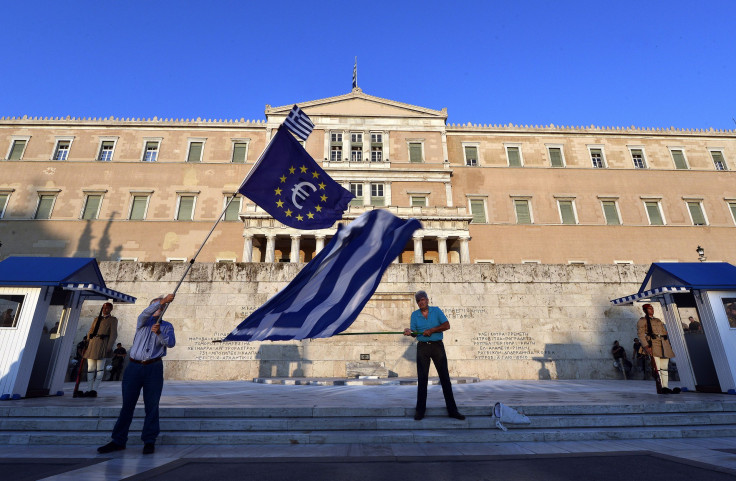Greek Bailout Talks: Uncertainty Prevails Ahead Of EU Finance Ministers’ Meeting

Ahead of a Friday meeting of eurozone finance ministers in Amsterdam to review Greece’s compliance with the conditions of its bailout program, German Finance Minister Wolfgang Schäeuble said Wednesday he was not sure if the Greek bailout will work in the long term. Meanwhile, Greek Prime Minister Alexis Tsipras made an appeal Thursday for debt relief instead of further austerity measures, after fresh data showed the economy had a better-than-expected primary surplus in 2015.
Referring to data released Thursday by Eurostat — the EU’s statistics office — Tsipras told euronews in an interview that the Greek economy had performed better than expected in 2015 despite it being a tough year, which saw two general elections, a referendum, banks remaining closed for long periods and the country bearing a large brunt of the refugee crisis.
“Greece therefore has a surplus of 0.7 percent, that is 1 percent above target and does not need any extra [austerity] measures. What Greece needs is a necessary easing of the debt if the economy is to take off, the investors trust will be regained and we will return to growth, finally,” he said.
In the interview, he also expressed confidence in the stability of his government that has a very slim majority in the Greek parliament.
“The country will exit the crisis and our parliamentary majority is sufficient, as long as we won’t let some people place additional burdens to those already anticipated in the agreement,” Tsipras said, talking about Greece’s agreement with its lenders.
Greece’s public deficit for 2015 was 7.2 percent of its gross domestic product, up from 3.6 percent a year ago, but lower than the 7.6 percent predicted by European officials in February. The country also posted a primary surplus of 0.7 percent, better than the 0.25 percent stipulated in its creditor agreement signed last year.
Negotiators from Greece, the EU and the International Monetary Fund (IMF) are locked in talks to decide further reforms that will keep aid flowing to Greece from its third bailout, worth 86 billion euros ($97 billion). The review, for which EU finance ministers are meeting Friday, was initially supposed to be completed in October.
There are many differences among the lenders, including between EU members, as well as between the EU and the IMF. The lenders’ ambivalence about the probability of the bailout program succeeding was clear in the comments of Schäeuble.
According to him, it is difficult for the Greek economy to recover without devaluing its currency, something it cannot do since it is a part of the eurozone, prompting him to say: “I’m not sure it [the bailout] will work.”
At the same time, the German finance minister also said he is optimistic that the Greek government will listen to advice from the European Union in much the same way it had agreed to accept help from its neighbors to deal with the refugee crisis.
“We can make it, I’m not that pessimistic, we’ve made progress,” he said.
Meanwhile, a report by the Economist Intelligence Unit published Thursday said it would be difficult for any Greek government to implement the reforms required by the third bailout program, and put Greece’s chances of leaving the eurozone at about 60 percent.
© Copyright IBTimes 2024. All rights reserved.




















